MSF: Rise of violence is increasingly compromising access to healthcare in Cabo Delgado
Mozambique: Energy agency says no more Moz gas; Total demands peace – By Joseph Hanlon
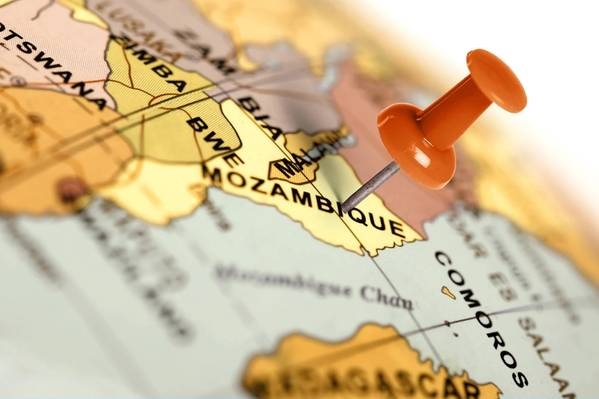
in file CoM
In this issue
Gas
- IEA says no future for Moz gas
- Total will only return with peace
Cabo Delgado civil war
- Government blocking humanitarian aid
- Palma displaced 54,023
- More Amnesty accusations
- International Energy Agency says no future for Mozambique gas
Mozambique’s gas fields cannot be developed if global warming is to be kept to 1.5º above pre-industrial levels, according to a dramatic International Energy Agency (IEA) report published Tuesday (18 May). The IEA is part of OECD and thus represents establishment, mainstream thinking. So when it says gas is done, that carries significant weight.
The IEA report is entitled Net Zero by 2050, and shows what needs to be done to reduce global carbon dioxide (CO2) emissions to net zero by 2050, to limit the long-term increase in average global temperatures to 1.5º C, and ensure universal access to electricity and clean cooking by 2030. https://www.iea.org/reports/net-zero-by-2050
To do this requires that “beyond projects already committed as of 2021, there are no new oil and gas fields approved for development.” Only two Cabo Delgado projects fit within that window – ENI’s floating LNG plant (3 million tonnes per year – mt/y – of LNG) and Total’s suspended project (13 mt/y). ExxonMobil has still not committed, and Total has not committed to a larger project, so under IEA scenario they are excluded. In any case, the Economist (4 Feb) reports that shareholders are pushing ExxonMobil to go green. This means production of at most 16 mt/y, which is far less than the 100 mt/y being predicted just six years ago.
“The contraction of oil and natural gas production will have far-reaching implications for all the countries and companies that produce these fuels. No new oil and natural gas fields are needed.” This will mean a huge cut in projected income for gas-producing countries. “Net zero calls for nothing less than a complete transformation of how we produce, transport and consume energy.”
“No new natural gas fields are needed… beyond those already under development. Also not needed are many of the liquefied natural gas (LNG) liquefaction facilities currently under construction or at the planning stage. Between 2020 and 2050, natural gas traded as LNG falls by 60%. … In the 2030s some [gas] fields may be closed prematurely or shut temporarily.”
The AEI report puts forward three scenarios:
- Specific policies that are in place or have been announced by governments. This leads to a global temperature rise of 2.7º. In 2050 natural gas use is 50% higher than now. (This is approximately the projection of the Gas Exporting Countries Forum.)
- All announced pledges are achieved in full and on time. This leads to a global temperature rise of 2.1º. Natural gas use expands by 10% to 4 350 bcm (billion cubic metres) in 2025 and remains about that level to 2050. (The is what the gas industry is planning for.)
- IEA net zero. Global temperature rise is held to 1.5º. Natural gas increases to 4 300 (bcm) in 2025, similar to “all announced pledges”, but then drops dramatically to 3 700 bcm in 2030 and to 1 750 bcm in 2050. By 2050, natural gas use is 55% lower than in 2020. (Note that by the 2025 peak, only ENI’s floating platform will be producing.) This scenario also includes universal access to electricity and clean cooking by 2030.
Global 2º compared to 1.5º for Mozambique: Hotter, drier, worse cyclones; south hit hardest
IEA cites extensively a report by the IPCC (Intergovernmental Panel on Climate Change), which is so detailed that it is possible to estimate the difference between global warming of 1.5º and 2º for Mozambique. The 1.5º and 2º are global average increases, and the actual impacts vary significantly across the world, and even within Mozambique.
Temperature rise in Mozambique will be more serious at global 2º than global 1.5º of warming. The hottest days and coldest nights will both be hotter. Global 1.5º causes a Mozambique temperature rise, but the increase is much greater at 2º. The number of hot days increases more in the north than in the south.
Southern Mozambique will become much dryer at 2º with droughts. Water shortages will be more severe at 2º than 1.5º. The number of consecutive dry days increases, particularly in the south.
Total rainfall will decrease more at 2º than 1.5º across Mozambique, and will be most serious south of the Zambeze river. However extreme rainfall increases significantly, particularly in northern coastal zones.
The number of cyclones may actually decrease, but their intensity increases. Thus flooding causes by heavy rain and intense cyclones will be more serious with 2º warming than with 1.5º.
The ocean will get warmer, and sea level will rise – with significant difference between 1.5º and 2º.
There is increased risk to mangroves.
Moving from 1.5° to 2° of warming reduces maize yield and the suitability of maize as a food crop. Food shortages are predicted, and the risks at 2º are “much larger than the corresponding risks at 1.5°”.
This all comes from an extremely detailed comparison of 1.5º and 2º with maps good enough to identify differences within Mozambique in Chapter 3 of the IPCC (Intergovernmental Panel on Climate Change) thick 2018 tome Global warming of 1.5ºC https://www.ipcc.ch/sr15/ .
- Total will return only with peace and tranquillity
“As soon as Cabo Delgado has peace again, Total will return,” the president of the French oil and gas company, Patrick Pouyanee, promised Monday (17 May). President Filipe Nyusi confirmed Tuesday (18 May) that Total will return only when everything “is calm”. “Total may demand that there is tranquillity and peace to develop its economic projects,” Nyusi added. (Lusa 18 May)
France has shown “complete willingness” to provide whatever is necessary for Mozambique’s fight against terrorism in the northern province of Cabo Delgado, according to President Filipe Nyusi after his meeting in Paris with his French counterpart, Emmanuel Macron, on Tuesday. (18 May) Nyusi said “we discussed in detail the situation of terrorism. The matter is unavoidable. France has shown great willingness, but it has left sovereignty in the hands of Mozambicans”. To follow up, Nyusi said, the two countries must advance quickly to sign the agreements which will define exactly the type of support to be granted by France. (Mediafax 19 May) But it remains unclear if Mozambique sovereignty will allow enough of a French presence to guarantee the tranquillity and peace Total demands.
Nyusi also met in Paris with Arnaud Pieton, executive administrator of Technip, the principal offshore contractor. Pieton said “we have received guarantees from the Mozambique government that they are doing everything to reintroduce security, and this is a fundamental condition for the project to be developed rapidly.” (O Pais 19 May)
Mozambique has not “at any time” refused international support, because the fight against terrorism “is not conducted alone”, President Filipe Nyusi said yesterday (19 May) in Paris. But South Africa’s state security minister Ayanda Dlodlo said Mozambique’s reticence to enlist the help of its neighbours to quash the insurgency runs counter to a regional assessment of how best to speedily halt the violence. Nyusi has accepted offers of training, but not of direct military intervention. A SADC mission proposed a 3000 person military force, but Mozambique has stopped SADC from discussing the proposal. (Bloomberg, Lusa 19 May) During his visit to Paris, Nyusi also had meetings with the South African and Rwandan Presidents, Cyril Ramaphosa and Paul Kagame, both of whom have offered to send soldiers, and with the Ethiopian Prime Minister, Abiy Ahmed Ali, who has his own internal war.
An EU military training mission will arrive this week Portuguese prime minister Antonio Costa said in Paris Tuesday. He added that that Portugal is “available to join” military forces in Mozambique. (O Pais 19 May)
It is doubtful that the insurgents have direct links with ISIS, South Africa’s state security minister Ayanda Dlodlo said. ISIS “claims responsibility for anything and everything,” Dlodlo said. Most of the insurgents in Cabo Delgado are poor, young locals. (Bloomberg 19 May)
The World Bank “will not abandon” Mozambique, the Bank’s Director of Operations, Axel van Trotsenburg told Nyusi on Tuesday (18 May) in Paris. But he added that it is for Mozambique to solve the security problem. (Lusa 18 May, O Pais 19 May)
Total will pay “outstanding amounts” to small and medium-sized Mozambican companies contracted for the gas project in Cabo Delgado, the Maputo government told Lusa on Wednesday (19 May). However, by declaring force majeure, Total immediately stopped all contracts – so “outstanding amounts” will probably be only money owned up to that date. But expecting the contracts to run for several years, small companies will have rented property, taken on staff, and bought equipment. Will Total pay those costs?
And the war
- Government still blocking aid to Palma; the focus on ‘terrorists’ makes it worse
There is still no aid reaching up to 20,000 people not being allowed to leave Quitunda near Palma. Finally Medecins Sans Frontieres (MSF) has spoken out. “Significant restrictions are placed on the scale up of the humanitarian response due to the ongoing insecurity, and the bureaucratic hurdles impeding the importation of certain supplies and the issuing of visas for additional humanitarian workers,” said Jonathan Whittall, MSF Director of Analysis, on 14 May. http://bit.ly/Moz-Palma-MSF
It is also made very difficult for foreigners to visit the area. The UN was allowed to send a team to Quitunda on 21 April, but could not negotiate aid access. After the visit, the International Organization for Migration (IOM) called “for full humanitarian access and a reduction of bureaucratic impediments, including the issuing of visas [for UN experts], to ensure timely and efficient delivery of humanitarian aid.” There is also a need for “greater and strategic engagement with the Government,” said Laura Tomm-Bonde, IOM’s head of mission in Mozambique. But the call fell on deaf ears.
Whittall, too, recently visited but apparently without gaining access.
He writes: “What does seem set to scale up is the regionally supported and internationally funded counter-terrorism operation that could further impact already vulnerable people. In many conflicts, from Syria to Iraq and Afghanistan, I have seen how counter-terrorism operations can generate additional humanitarian needs while limiting the ability of humanitarian workers to respond.
“Firstly, by designating a group as ‘terrorists’, we often see that the groups in question are pushed further underground – making dialogue with them for humanitarian access more complex. While states can claim that they ‘don’t negotiate with terrorists’, humanitarian workers are compelled to provide humanitarian aid impartially and to negotiate with any group that controls territory or that can harm our patients and staff.”
“For Medecins Sans Frontieres (MSF), successfully providing impartial medical care requires reserving a space for dialogue and building trust in the fact that our presence in a conflict is for the sole purpose of saving lives and alleviating suffering.”
Whittall is showing why the Mozambique government is trying to keep out the foreign humanitarian workers. The government says that it cannot find anyone with whom it can negotiate. MSF says it can “negotiate with any group that controls territory” – and clearly has in Cabo Delgado.
“Counter-terrorism operations try to bring humanitarian activities under the full control of the state and the military coalitions that support them. Aid is denied, facilitated or provided in order to boost the government’s credibility, to win hearts and minds for the military intervening, or to punish communities that are accused of sympathising with an opposition group. The most vulnerable can often fall through the cracks of such an approach, which is why organisations like MSF need to be able to work independently. … Being aligned to a state that is fighting a counter-terrorism war would reduce our ability to reach the most vulnerable communities to offer medical care.”
“In counter-terrorism wars around the world, we often see civilian casualties being justified due to the presence of ‘terrorists’ among a civilian population. Entire communities can be considered as ‘hostile’, leading to a loosening of the rules of engagement for combat forces,” Whittall writes.
And he concludes: “The current focus on ‘terrorism’ clearly serves the political and economic interests of those intervening in Mozambique. However, it must not come at the expense of saving lives and alleviating the immense suffering facing the people of Cabo Delgado.”
54,023 people from Palma have been forcibly displaced, and are outside Palma, IOM (UN Migration) said Wednesday (19 May). Displaced people are fleeing to the districts of Mueda (15,651), Nangade (14,067), Pemba (11,741), Montepuez (6,448), and Ibo (1,867), and most (83%) are hosted by local communities. Over 660 unaccompanied and separated children have been identified as of 19 May. IOM says that an addition 23,000 displaced people are still in Quitunda. IOM reports are issued daily – the most recent is on https://displacement.iom.int/reports/mozambique-emergency-tracking-tool-palma-crisis-report-85-27-march-19-may-2021 UNHCR’s financial requirements for the Mozambique operation in 2021 total $ 25.7 mn, but as of 11 May only 25% of these needs have been funded.
UNHCR has protested at Tanzania forcibly returning Mozambican refugees, fleeing over the border to escape the insurgency. UNHCR spokesperson Boris Cheshirkov, speaking at a press briefing in Geneva on Tuesday, said at least 4000 Mozambicans have been denied refuge in Tanzania. This includes reports of over 1,500 returned from Tanzania this month alone. They flee from Palma and are taken in by Tanzania and simply taken inland away from the fighting, and then sent south back into Mozambique. (AIM 19 May)
Amnesty says “white contractors were prioritised for evacuation ahead of Black locals, in disturbing testimony that points to blatant racism.” After the 24 March attack on Palma, about 200 black Mozambicans and 20 white contractor staff took refuge in the Amarula Hotel. South African private military company Dyck Advisory Group (DAG) rescued some from the hotel. White contractors were prioritized to be airlifted to safety, followed by “a few well-off Black nationals – among them the Administrator for Palma, said Amnesty on 13 May.” http://bit.ly/Moz-Palma-Am It is notable that the Amarula was only under siege by the insurgents because the administrator was there and he, not the foreigners, were their target.
Amnesty confirms security forces burned houses. “Exclusive satellite imagery obtained by Amnesty International from 1 April revealed the extent of damage caused by the attack on Palma, that lasted until 31 March. The assault concentrated on public infrastructure and government facilities, rather than homes. On 9 April, satellite imagery showed 33 more structures – likely homes – had been destroyed since 1 April when the Mozambique security forces had reportedly regained control of the region.” The photo on the website http://bit.ly/Moz-Palma-Am shows that the initial destruction was along the main road in town, but the 1-9 April burnings were in residential zones near the beach. “This aligns with previous Amnesty International research that indicated the Mozambique security forces have conducted reprisals against the civilian population once ‘Al-Shabaab’ have retreated.”
The US advised its citizens against travelling to Pemba in a travel advisory published 10 May.
Civil servants must return to Muidumbe, despite continued sporadic fighting, the district administrator, Saíde Aly Chabane, demanded on 14 May, when he met provincial health workers taking refuge in Pemba. He proposed moving the health workers to Mueda, closer to Muidumbe, and for them to go into the district for 30 days. But civil servants are afraid, because they are particular targets of insurgent attacks.
Industry has finally noticed the local content problem, which has been one area fuelling the insurgency. Local people and businesses accuse Anadarko and now Total of not promoting jobs for people near the gas, and “local content” is accused of going to Maputo and Frelimo-linked companies. The industry group African Energy Chamber issued a statement Tuesday (18 May) on the talks in Paris, which said: “To increase the effect in the Mozambican economy, the way we manage local content should also be addressed. We should consider results based local content programs and maybe have some set aside programs that are more inclusive of the population of Cabo Delgado. Such programs should include training and development and entrepreneurial drive to open doors of opportunity to everybody. We in the energy industry must seriously rethink the way these programs are being developed, as they could be an excellent solution for the security issues in Cabo Delgado. More qualified jobs mean fewer disqualified criminals. Mozambicans can no longer be the last hired and the first fired.”
Comment: I like the “maybe” in “maybe have some set aside programs that are more inclusive of the population of Cabo Delgado.” It is a decade late, and four years into the war. But it is useful that the industry has at least noticed that perhaps it should “seriously rethink” the idea of actually giving jobs and skills to local people. Maybe it is recognising that failure to do so is probably the biggest single factor behind the war. jh
- Other news
The much delayed Frelimo Central Committee meeting will finally take place this weekend, 22-23 May. Commissions are already meeting. This meeting will begin preparations for the 12th Congress and the selection of a presidential candidate. There is a two-term limit and Nyusi cannot stand again.
By Joseph Hanlon


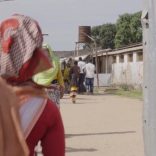
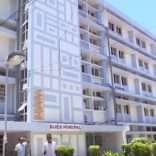
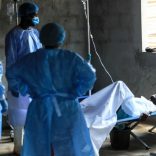
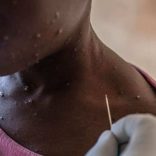






Leave a Reply
Be the First to Comment!
You must be logged in to post a comment.
You must be logged in to post a comment.